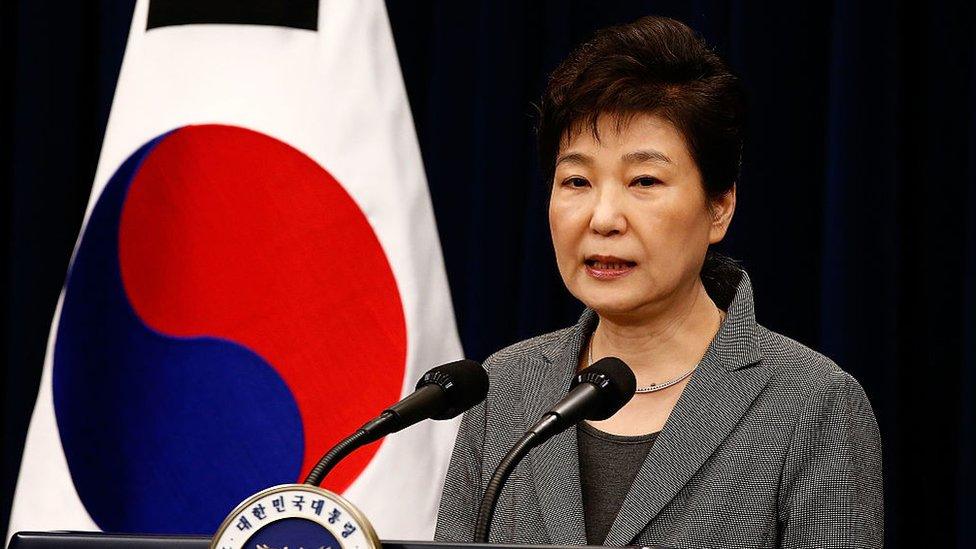South Korea seeks arrest of ex-president Park Geun-hye
- Published
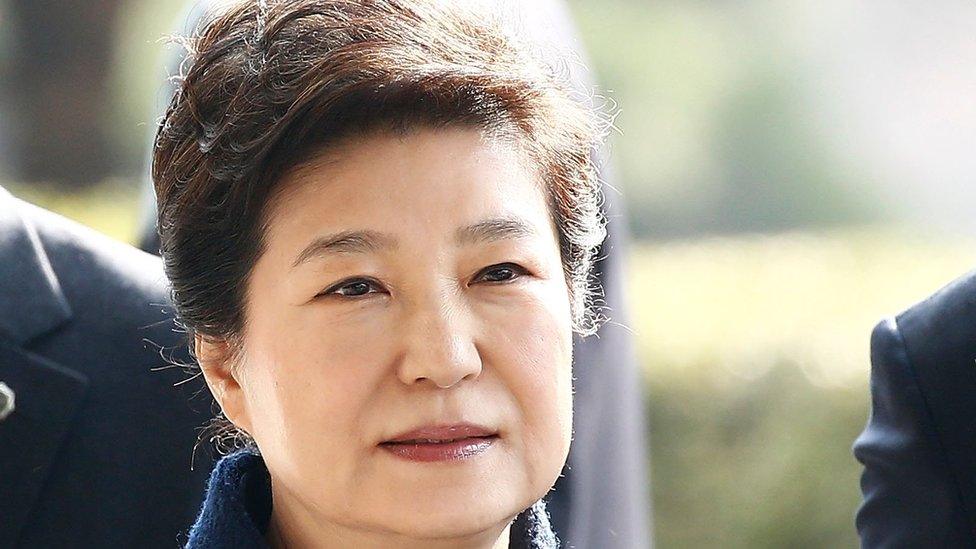
Ms Park is South Korea's first democratically elected leader to be forced from office
South Korean prosecutors have applied for an arrest warrant for former president Park Geun-hye, for her role in a corruption scandal.
Earlier this month, she lost her presidential immunity and was dismissed from her post when the constitutional court upheld a decision by parliament to impeach her.
Ms Park is accused of allowing her close friend Choi Soon-sil to allegedly extort money from big firms.
Ms Park has denied the allegations.
The former president apologised to the public last week, before being questioned by authorities for 14 hours.
"The case is very grave as the suspect has demonstrated acts of abuse of power by making companies give money and infringing on the freedom of corporate management by using powerful position and authority as president," prosecutors said in a statement on Monday.
The prosecutors argue that evidence like computer hard drives might be destroyed if Ms Park is not arrested.
Ms Choi has been charged with bribery and corruption and is already on trial.
Why did Park lose her job?
At the heart of the drama lies the close friendship between Ms Park and Ms Choi.
Ms Choi is accused of using her presidential connections to pressure companies to give millions of dollars in donations to non-profit foundations she controlled.
The acting head of electronics conglomerate Samsung, Lee Jae-yong, was arrested for his role in the scandal.
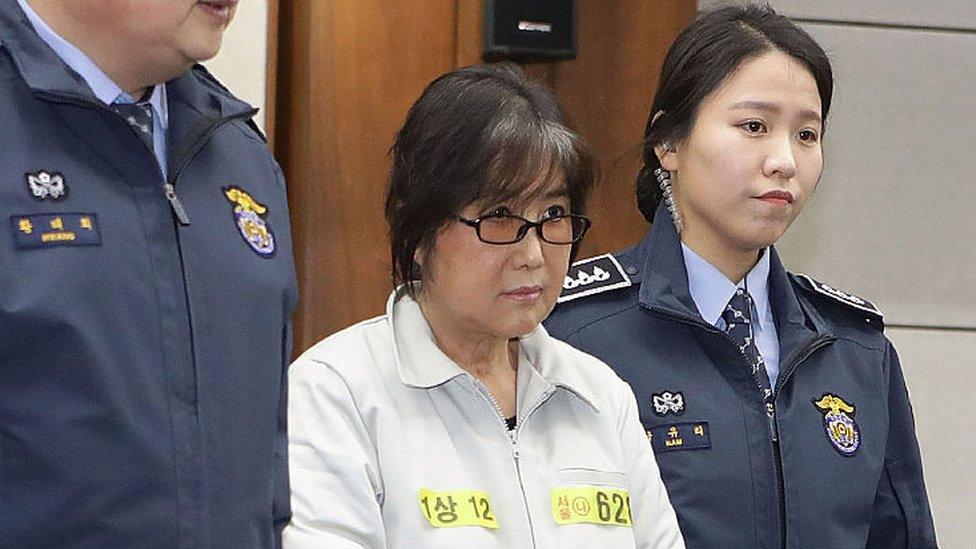
Ms Choi (centre) has been accused of bribery and corruption
Ms Park, 65, is alleged to have been personally involved in this, and to have given Ms Choi unacceptable levels of access to official documents.
Parliament voted to impeach Ms Park in December.
On 10 March, the constitutional court ruled that Ms Park's actions "seriously impaired the spirit of... democracy and the rule of law".
Judges said she had broken the law by allowing Ms Choi to meddle in state affairs, and had breached guidelines on official secrets by leaking numerous documents.
Ms Park had "concealed completely Choi's meddling in state affairs and denied it whenever suspicions over the act emerged and even criticised those who raised the suspicions," the ruling said.
What happens now?
The Seoul Central District Court will now determine whether there are grounds to issue the arrest warrant for Ms Park.
If it is issued, prosecutors will have up to 20 days to continue investigations and file charges against her, reports Reuters news agency.
As president she had enjoyed immunity and repeatedly refused to take part in questioning.
But now she could face several charges, including abuse of power, coercion, bribery and leaking government secrets.
- Published10 March 2017
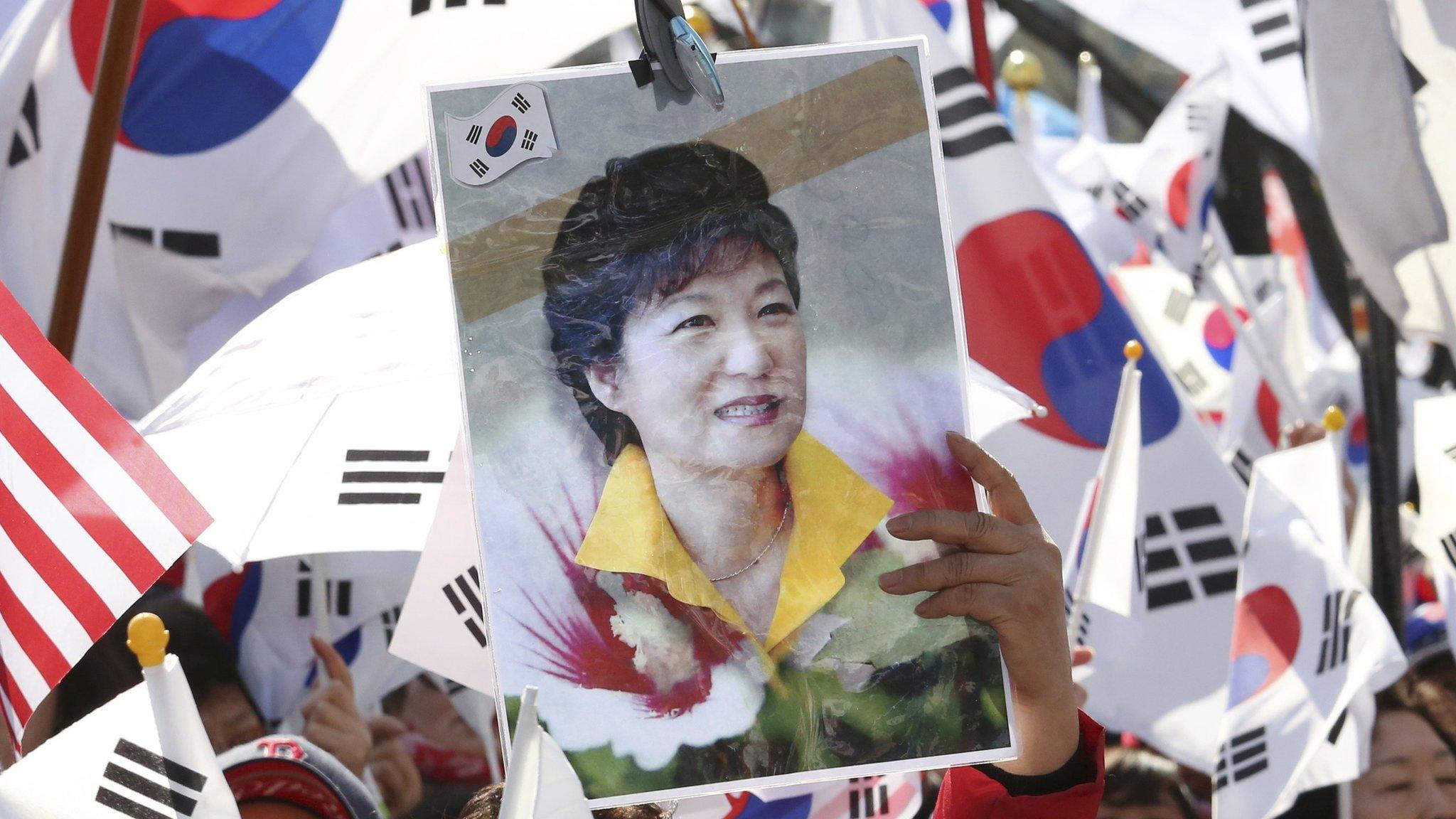
- Published10 March 2017
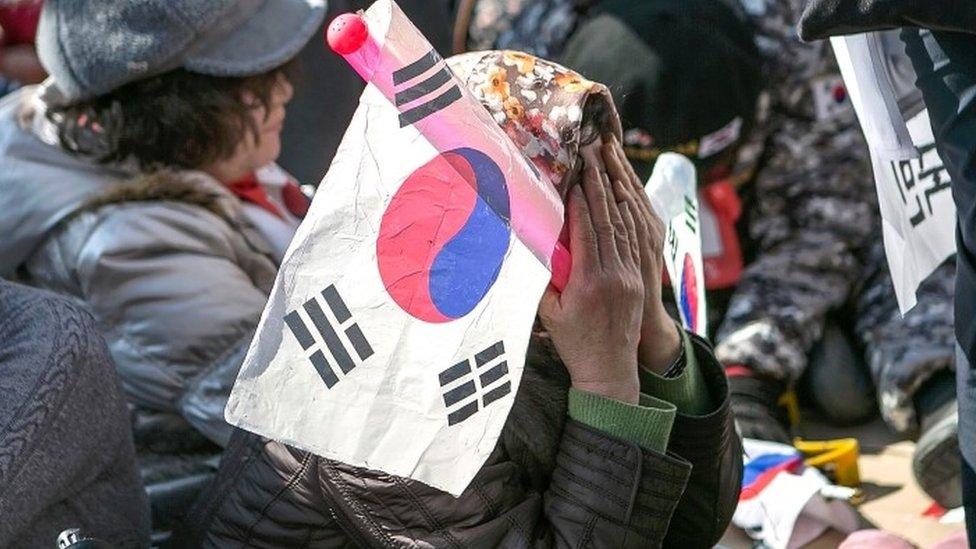
- Published10 March 2017
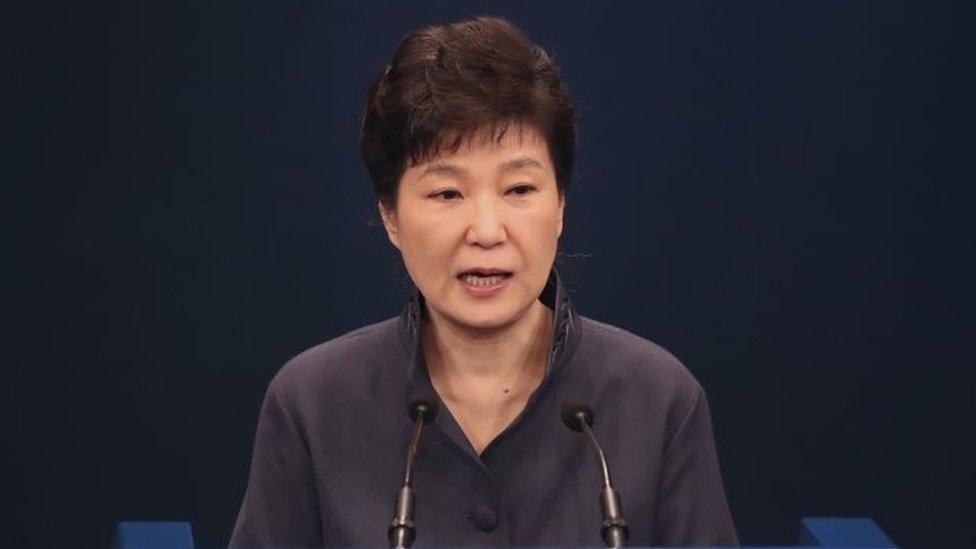
- Published8 May 2017
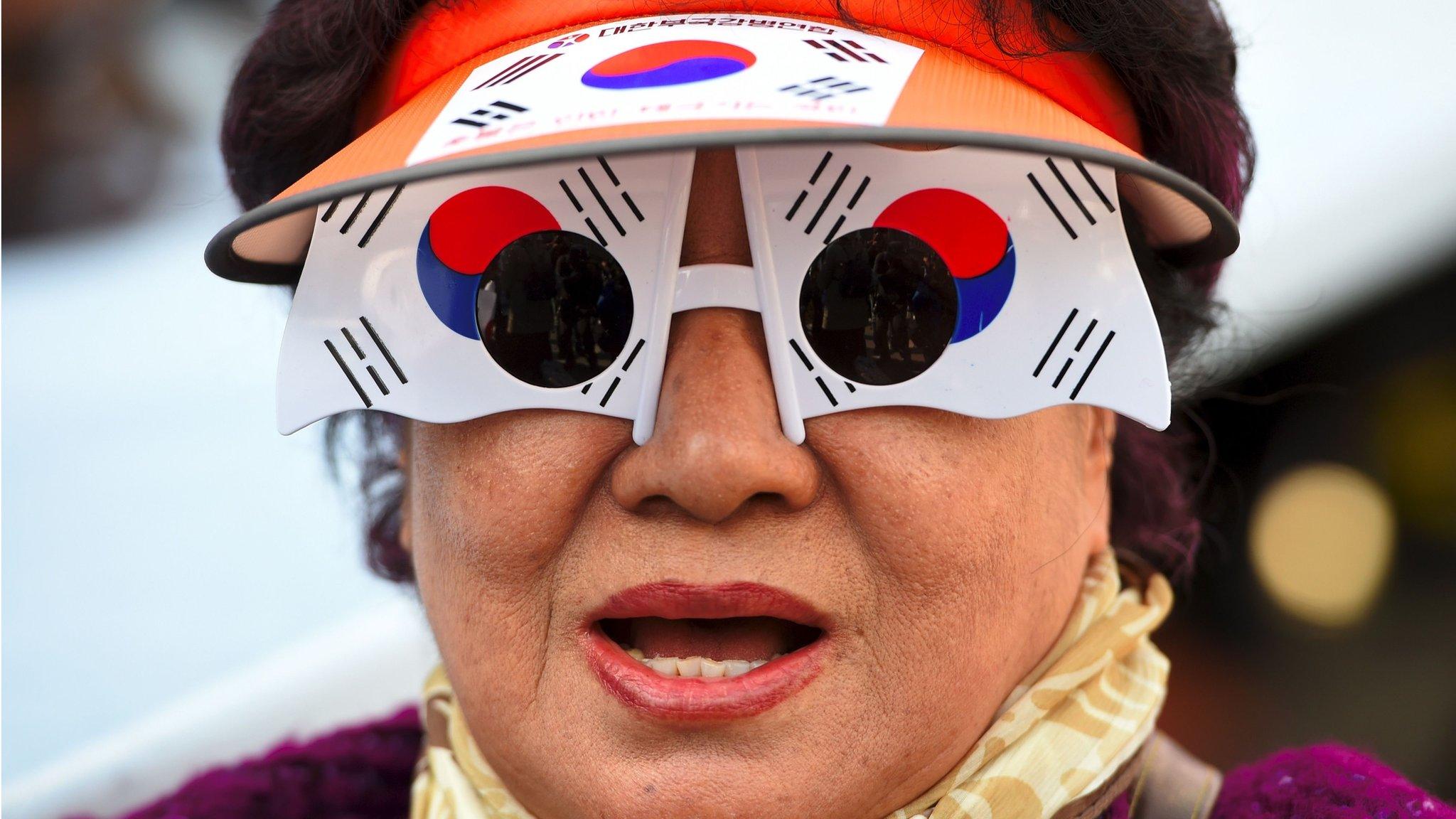
- Published9 December 2016
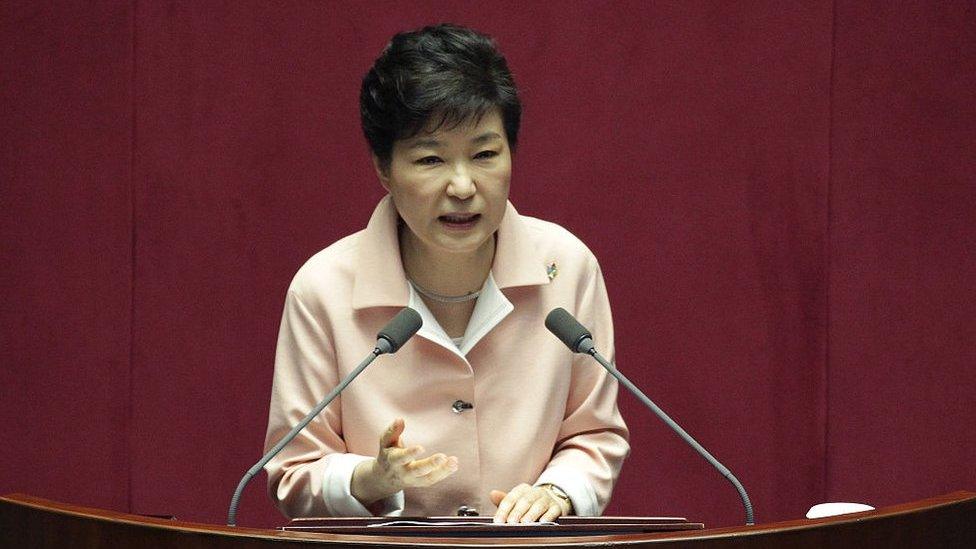
- Published31 October 2016
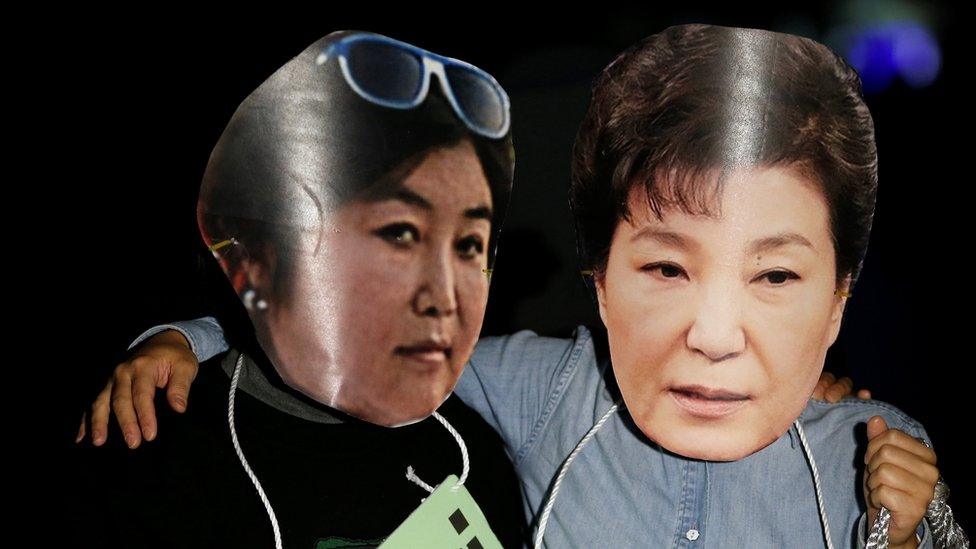
- Published6 April 2018
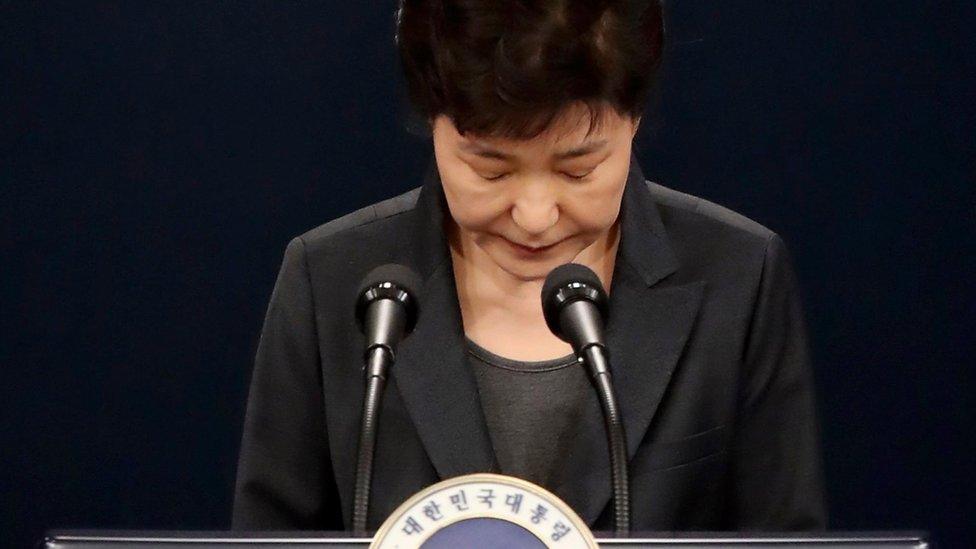
- Published6 April 2018
